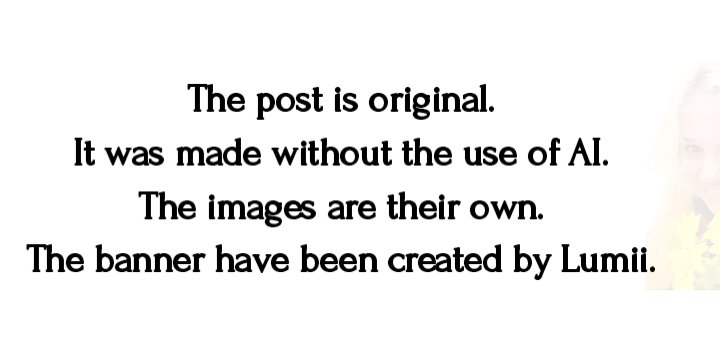Moll Flanders: Living Other Lives, Flying with Feet on the Ground | Review (Esp/Eng)
Perhaps because I’m a woman, or simply because, novels based on our lives are my weak spot and the largest section of my personal library. It was the year 2000 when the Cuban Book Institute, through its Ediciones Huracán, took on the task of publishing many classics. Back then, as a teenager addicted to printed paper, I wasted no time and grabbed everything I could from bookstores. Since then, I’ve kept this copy as a treasure, also because of the beautiful dedication a friend left on the back of the book.

This is Moll Flanders, the longest novel Daniel Defoe wrote, and it was an immediate success. Published in 1722, Defoe gifted English literature with a controversial and fascinating work. With his realistic style and straightforward prose, he creates the fictional memoirs of Moll, exploring such thorny themes as crime, morality, gender, and the struggle for social mobility as she navigates between marginality and survival.
The novel was so successful that summaries were immediately published, and mediocre imitations were attempted.

As I mentioned, the novel is written as a fictional autobiography in which Moll Flanders recounts her life from her birth in Newgate Prison to her old age as a repentant woman. Orphaned and raised on charity, her fate seems marked by precarity, driving her to assume multiple identities throughout her life: a wife five times over, a prostitute, a thief, and finally, a prisoner. Trapped in a cycle of marriages of convenience, deceit, theft, and escapes, she constantly strives to secure her place in a world hostile to women without means.
One very interesting aspect of Defoe’s work is that Moll justifies all her actions, even while acknowledging their immorality, and emphasizes that society left her no other choice. This is how the author critiques the structures that condemn women to poverty or marriage as their only salvation.

Moll is a pragmatic antiheroine. Imagine that, up to that point, female protagonists were usually morally impeccable, but this one—crafted by Defoe—steals, lies, and seduces to survive. In other words, she suggests that morality is a luxury only the rich could afford. This antiheroine is a victim of a system that punishes her for everything she’s done; yet, though a criminal, she is more honest about her motives than many of the "respectable" men around her.

As a journalist and publicist, Defoe’s almost journalistic realism is no surprise—the detailed descriptions of locations and financial transactions. This contrasts with Moll’s voice, which is sometimes cold and calculating and at other times seeks the reader’s empathy. This ambiguity perhaps makes the character feel more human and believable.
And, of course, it was scandalous in its time for its protagonist’s rawness and immorality, though today it is valued as socially bold.

Some critics argue that the moralizing ending weakens the novel, while others see it as Defoe’s intentional irony.
There is so much to unpack and discuss in this work. It is by no means a comfortable novel—quite the opposite. I’m sure its author wrote it to provoke a range of emotions in us: contempt, shock, pity, disgust… to make us wonder, What would we have done in this woman’s place in such an unequal and harsh society?
I’m left with the taste of stepping into Moll’s shoes and living in 18th-century England for a few hours because, after all, that’s the pleasure great literature gives us: to live other lives, to fly with our feet on the ground.


📖VERSIÓN EN ESPAÑOL 📖
Moll Flanders: Vivir otras vidas, volar con los pies en el suelo | Reseña
Quizás por ser mujer, o simplemente porque sí, las novelas basadas en nuestras vidas son mi punto débil y el área más extensa de mi biblioteca personal. Corría el año 2000 cuando el Instituto Cubano del Libro, con sus Ediciones Huracán, se dio a la tarea de publicar muchos clásicos. Yo, como adolescente adicta al papel impreso en aquella época, no perdí tiempo y acaparé todo lo que pude en las librerías. Desde entonces, conservo este ejemplar como un tesoro, además por la bella dedicatoria que una amiga me dejó en el reverso del libro.

Se trata de Moll Flanders, la novela más extensa que Daniel Defoe escribió y que tuvo un éxito inmediato. Publicada en 1722, Defoe le regaló a la literatura inglesa una obra controvertida y fascinante. Con su estilo realista y prosa directa, crea las memorias ficticias de Moll, donde explora temas tan escabrosos como el crimen, la moralidad, el género y la lucha por ascender socialmente mientras navega entre la marginalidad y la supervivencia.
Tanto éxito tuvo esta novela que de inmediato se publicaron resúmenes y se intentaron mediocres imitaciones de la obra.

La novela, como ya mencioné, está escrita como una autobiografía ficticia en la que Moll Flanders relata su vida desde su nacimiento en la cárcel de Newgate hasta su vejez como mujer arrepentida. Huérfana y criada por caridad, su destino parece marcado por la precariedad, lo que la empuja a asumir múltiples identidades a lo largo de su vida: esposa en cinco ocasiones, prostituta, ladrona y, finalmente, prisionera. Atrapada en una sucesión de matrimonios por conveniencia, engaños, robos y huidas, siempre con el objetivo de asegurarse un lugar en un mundo hostil para las mujeres sin recursos.
Algo muy interesante en la obra de Defoe es que Moll justifica todas sus acciones, aunque reconoce la inmoralidad de sus actos y recalca que la sociedad no le dejó otra opción. Esta es la forma en que el autor critica las estructuras que condenan a las mujeres a la pobreza o al matrimonio como única salvación.

Moll es una antiheroína pragmática. Imaginen que, hasta entonces, las protagonistas de la época solían tener una moral intachable, pero esta que nos presenta el autor roba, miente y seduce para sobrevivir. Es decir, plantea que la moralidad es un lujo que solo los ricos podían permitirse. Esta antiheroína es víctima de un sistema que la castiga por todo lo que ha hecho; sin embargo, aunque criminal, es más honesta sobre sus motivos que muchos de los hombres "respetables" que la rodean.

Como periodista y publicista, no es de extrañar el realismo casi periodístico de Defoe, los detalles de las locaciones y las transacciones económicas. Esto contrasta con la voz de Moll, que a veces es fría y calculadora, y en otras ocasiones busca la comprensión del lector. Esta ambigüedad quizás hace que el personaje nos resulte más humano y creíble.
Y, claro, fue un escándalo en su época por la crudeza y la inmoralidad de su protagonista; sin embargo, hoy se valora como una obra audaz socialmente.

Algunas críticas señalan que el final moralizante debilita la novela, mientras que otros lo ven como una ironía intencional de Defoe.
Hay tanto por analizar y discutir en esta obra. No es, ni por asomo, una novela cómoda; todo lo contrario. Estoy segura de que su autor la escribió para provocarnos toda una serie de emociones: desprecio, conmoción, lástima, asco… para hacernos pensar: ¿Qué habríamos hecho en el lugar de esta mujer en una sociedad tan desigual y agreste?
Yo me quedo con el sabor de ponerme en el lugar de Moll y vivir en la Inglaterra del siglo XVIII por unas horas, porque, al fin y al cabo, ese es el placer que nos da la buena literatura: vivir otras vidas, volar con los pies en el suelo.


Congratulations @neuropoeta! You have completed the following achievement on the Hive blockchain And have been rewarded with New badge(s)
Your next target is to reach 5000 upvotes.
You can view your badges on your board and compare yourself to others in the Ranking
If you no longer want to receive notifications, reply to this comment with the word
STOPMira tú, ahora que me la cuentas me gustó más incluso que cuando la leí, qué mañas te das, Capi.
Te confieso que yo primero, ví la película, aún casi niña. No recuerdo quién era la actriz que representaba a Moll, pero si recuerdo que trabajaba el gran Morgan Freeman. Desde entonces me enamoré de la historia, y luego leí el libro, cuando lo pude comprar. Quizás por eso lo leí de otra forma, ya tenía las caras, las formas, solo era sumergirme en la historia y ampliar.
It has really been a while I read about novel books. Really missed it so much. Can you give me the pdf link
Hi!! Sorry, I don't have the book in digital format. All the books I reviewed are in my personal library, in physical form. My love for literature is old-fashioned—it's based on the smell of the page, the paper, the old ink, the touch. Anyway, I imagine finding it online shouldn’t be too hard with any regular search engine.
The them of the book is pretty intriguing. In its core it talk about women and their many roles. I mean, her background is so unfortunate but that definitely a book that invites us to reflect into it.
Of course, we must first remember that it was written in 18th-century England and consider what it meant to be a poor woman back then. She definitely could have chosen another life, other actions, another path—but that’s precisely the point: to see how society pushed her, and how she let herself be swept into crime, deceit, and that unfortunate thirst for wealth. This isn’t a novel for passive contemplation; it’s a novel to make you think, and think deeply.
Thanks, as always, for stopping by and reading me. 🙏🏻
Una historia interesante, donde la crítica social está bien marcada. "La pobreza y el matrimonio como salvación", una idea retrógrado que permeaba esa época.
Esa antiheroína tiene características singulares que la hacen resaltar, sin duda, logrando simpatía con el lector.
Si, ese es el valor tan grande de la obra, que a pesar de todo lo poco moral en lo que se enrola Moll, todos nos hacemos cómplices y hasta justificamos sus pasos, y eso se logra gracias a la maestría narrativa de Daniel Defoe.
Gracias por pasar por acá 😊 y leerme.